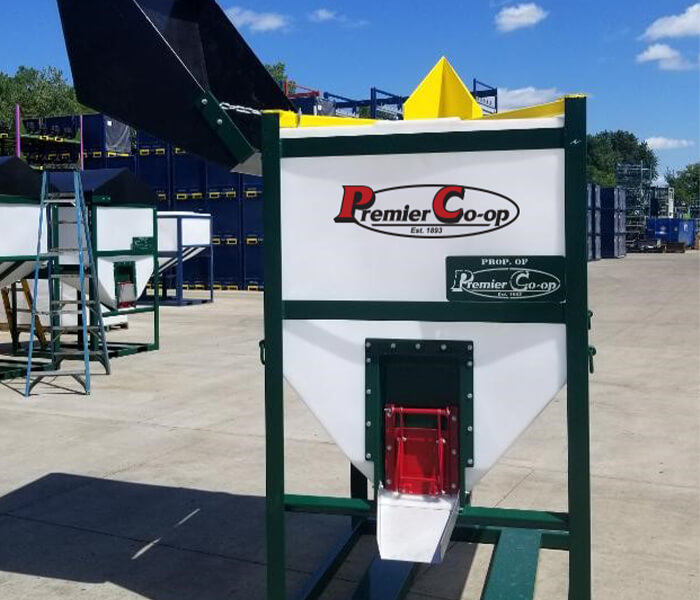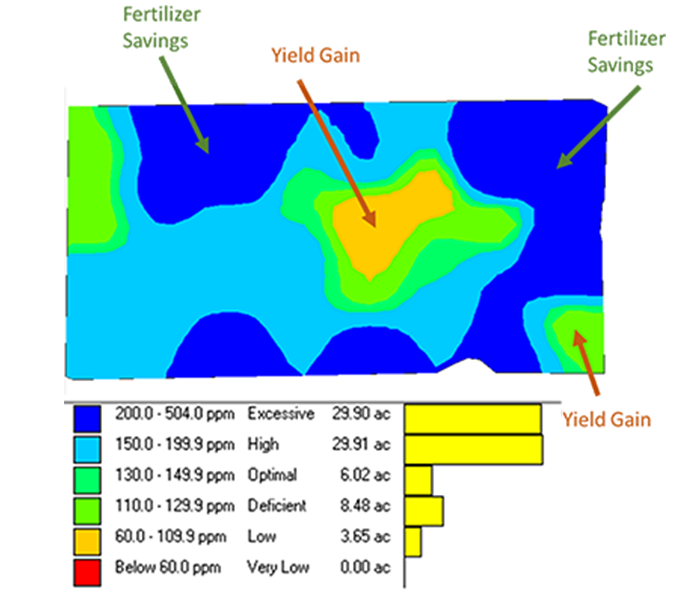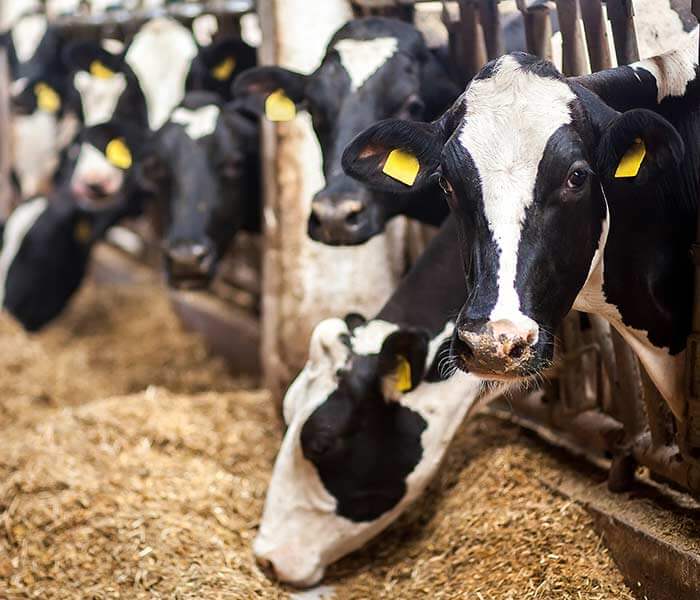Replace bagged feed with a mini bulk bin.
Replace your bagged feed with a Mini Bulk Bin. It is exactly what it sounds like, a mini bulk bin, that Premier Cooperative furnishes on farm for any type of bagged feed you may be handling. The Mini Bulk System brings multiple benefits to producers, such as, eliminating the need for 50 lbs bags, reduce feed cost, reduced labor and reduced waste.
It is no secret that bulk feed is easier to handle, preferred in many cases over bags, but bulk may not be an option for small amounts. This is where the Mini Bulk System comes into play. In addition to saving a little labor by eliminating bags, producers can see substantial savings on any bagged products they are handling. The Mini Bulk System is equipped to handle calf feeds, pellets and any mineral mixes.
Labor has been an ongoing issue on dairy farms for years. By implementing the Mini Bulk System into your operation, you can reduce labor all over the farm. Some examples include no longer carrying bagged calf feed from the shed to the calves to fill pails. The Mini Bulk System is a sealed unit that can sit outside anywhere on the farm, free of any weather condition getting in. Another would be no longer having to lift and dump your mineral bags into the skid loader bucket. With the Mini Bulk System, you can pull right up and fill the skid loader bucket with ease. Not to mention the ability to weigh your mineral, which allows you to be more consistent day after day, thus, eliminating excess feeding and providing cost savings.
By eliminating bags on your operation, you will no longer be filling your dumpsters with bags. With the Mini Bulk System, the feed comes in a tote and a rack. The rack is equipped with a quick tach for ease of use with a skid steer loader. The producer would attach to the rack, lift the tote and rack with their skid loader, and simply set the rack onto the mini bulk. The Mini Bulk has a built in cutter to slice the tote bag, allowing feed to flow out and fill within a few minutes. Once the tote and rack is empty, you can put the tote and rack back on the pallet it came on, set it aside out of the way and Premier will pick up the empty when we bring your next feed order.
Premier Cooperative strives to be leaders and on the cutting edge of opportunities in our industry. If you see opportunity in your operation for a Mini Bulk System, we encourage you to reach out to one of our 15 staffed nutrition consultants to find out how we can set you up with your own Mini Bulk System.
Brian Reilly
Feed Sales Manager




